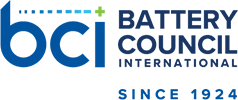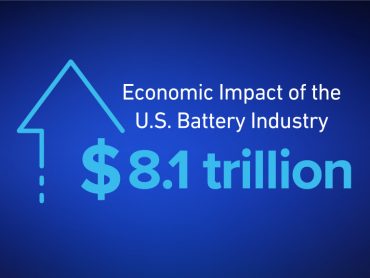
California EPA’s Department of Toxic Substances Control confirms it will not regulate lead batteries under SCP Program.
Battery Council International (BCI) is very pleased to report that on Dec. 26, 2024, the California Environmental Protection Agency’s Department of Toxic Substances Control (DTSC) issued its final decision document confirming the Department’s decision to not regulate lead batteries under the state’s Safer Consumer Products (SCP) Program.
“This decision is not only welcome, but more importantly the correct outcome,” said Roger Miksad, President and Executive Director of Battery Council International. “As DTSC found, existing laws and regulations cover the entire product life cycle, which combined with voluntary industry efforts provide a safe product ecosystem. DTSC’s decision avoids an unnecessary regulatory process that could have resulted in excessive and counter-productive regulatory burdens that would have served only to increase costs to consumers.”
This month’s action by DTSC is the culmination of nearly nine years of effort by BCI and its members to inform DTSC on the regulatory state of play for lead batteries, the critical role lead batteries play in the national energy storage ecosystem and economy, and ongoing industry efforts to further enhance product sustainability through intensive product research and development. In the 12 years since DTSC adopted the SCP Program regulations, lead batteries are the only product category DTSC has ever formally been removed from an active investigation.
This decision was originally announced in the Spring of 2021, five years after then-Governor Jerry Brown directed DTSC to consider regulating, or even banning, lead batteries. With the most recent action, DTSC has formally closed its evaluation under the SCP Program by issuing a final decision document.
The announcement states that DTSC has decided to not list lead batteries as a Priority Product for the following reasons:
- Lead batteries are already heavily regulated and any additional actions that could be taken under the SCP Program are “unlikely to meaningfully enhance protection to human health or the environment.”
- “After researching potential alternatives, [DTSC] determined that the widespread replacement of lead acid batteries is not currently technically or economically feasible.”
- Due to existing “significant public and private investments” in advanced lead battery technologies and other battery chemistries listing lead batteries as a Priority Product “is unlikely to meaningfully stimulate innovation.”
BCI does have concerns with various misstatements and mischaracterizations contained in DTSC’s final decision document. For example, DTSC relied on EPA descriptions of lead recycling facilities from a 1986 that is woefully outdated, describing processes not used since the 1970s.
Most concerning, the document repeatedly overstates the risks posed by lead batteries when used by consumers and safely processed in modern manufacturing and recycling facilities. DTSC completely failed to recognize that the California and national manufacturing industries have already eliminated nearly all worker exposures to lead – with the industry achieving worker health measures significantly more protective than the then current California and national standards.
However, in totality, BCI welcomes DTSC’s commitment to considering all of the information submitted to the agency, and we recognize that DTSC’s evaluation resulted in the agency reaching the correct conclusion.
BCI wishes to recognize the expertise and assistance provided by the industry’s advisors at KP Public Affairs in California, Wiley Rein LLP in Washington, D.C, and the many member-company volunteers and experts on the BCI Environmental Health and Safety Committee.
For more information, contact info@batterycouncil.org.





